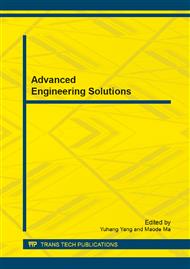p.611
p.615
p.620
p.625
p.630
p.635
p.639
p.644
p.648
Design and Simulation Analysis on Self-Tuning Fuzzy Controller Based on Scaling Factor and Quantitative Factor
Abstract:
Along with the development of modern science and technology information, fuzzy control theory based on its unique advantage becomes more and more popular with scientists and engineers, therefore it is quickly applied to all walks of life, and is one of the advanced teaching theory introduced in educational industry. Firstly, on the basis of mapping between classical set and fuzzy set, the paper comprehensively analyzes the intelligent fuzzy control theory. Based on the improved fuzzy controller which is self-correcting through scale factor and quantification factor, we establishes the fuzzy control model of moral education. In order to verify the feasibility of the model, we design the fuzzy controller to carry out the applied simulation by using the MATLAB fuzzy logic toolbox, and the results show that the system has fast response, strong adaptability, and good steady-state performance.
Info:
Periodical:
Pages:
630-634
DOI:
Citation:
Online since:
July 2014
Authors:
Keywords:
Price:
Сopyright:
© 2014 Trans Tech Publications Ltd. All Rights Reserved
Share:
Citation:


